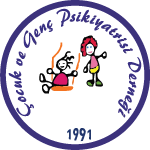ABSTRACT
Conclusion:
Addressing cognitive awareness and emotional resilience levels in anxiety disorders at an early stage will significantly contribute to the holistic evaluation of these patients. In addition, trying to increase the levels of metacognitive awareness and emotional resilience may be mentally protective.
Results:
No statistically significant difference was found between the patient and control groups in terms of total scores of the metacognitive awareness and emotional resilience scales. In the patient group, a positive correlation was found between the RSCA scores and the RCADS-P anxiety and total scores (p=0,005, r=0,371, p=0,006, r=0,363, respectively).
Materials and Methods:
The study was conducted on 32 patients diagnosed with anxiety disorders and 30 age- and sex-matched children with any psychiatric disorder. The study group completed the Metacognitive Awareness Inventory (Jr. MAI) and Resiliency Scales for Children and Adolescents (RSCA). The parents filled out the Revised Child Anxiety and Depression Scale-Parent Form (RCADS-P).
Objectives:
In this study, the first aim was to compare the metacognitive awareness and emotional resilience levels of children with anxiety disorders with healthy controls. Another aim was to examine in the patient group the relationship between metacognitive awareness and emotional resilience, as well as their relationship with the frequency of anxiety symptoms expressed by the parents.
Keywords:
Anxiety disorder, child, metacognitive awareness, emotional resilience, controlled study
References
1Irak M. Üst-biliş mi? Yönetici işlevler mi?: Bilme hissinin nöropsikolojik testlerle ölçülen dikkat süreçlerinden yordanması. Türk Psikoloji Dergisi. 2005;20:97-116.
2Dienes Z, Perner J. A theory of implicit and explicit knowledge. Behav Brain Sci. 1999;22:735-55.
3Kuhn D. Metacognitive development. Current Direction in Psychological Science. 2000;9: 178-181.
4Gao L. Metacognitive Strategies to Chinese College English Learners: A Real Gold or Only with a Golden Cover. Journal of education and learning. 2013;2(4):71-6.
5Smith KE, Hudson JL. Metacognitive beliefs and processes in clinical anxiety in children. J Clin Child Adolesc Psychol. 2013;42:590-602.
6Wells A. Meta-Cognition and worry: a cognitive model of generalized anxiety disorder. Behav Cogn Psychother. 1995;23:301-20.
7Wells A. The metacognitive model of GAD: assessment of meta-worry and relationship with DSM-IV generalized anxiety disorder. Cognitive Therapy and Research. 2005;29:107-21.
8Papageorgiou C, Wells A. Metacognitive beliefs about rumination in recurrent major depression. Cognitive and Behavioral Practice. 2001;8:160-4.
9Toneatto T. Metacognition and substance use. Addict Behav. 1999;24:167-74.
10American Psychiatric Association. Diagnostic and statistical manual of mental disorders: DSM-5. American Psychiatric Publishing Inc, VA, USA, 2013.
11Wells A. Emotional disorders and metacognition: Innovative cognitive therapy. John Wiley & Sons. 2002.
12Bacow TL, May JE, Brody LR, Pincus DB. Are there specific metacognitive processes associated with anxiety disorders in youth? Psychol Res Behav Manag. 2010;3:81-90.
13Reinholdt-Dunne ML, Blicher A, Nordahl H, Normann N, Esbjørn BH, Wells A. Modeling the Relationships Between Metacognitive Beliefs, Attention Control and Symptoms in Children With and Without Anxiety Disorders: A Test of the S-REF Model. Front Psychol. 2019;10:1205.
14Öngider N. Cognitive behavioral therapies in childhood and adolescent mood disorders and anxiety disorders: a review. Journal of Cognitive-Behavioral Psychotherapy and Research. 2014;3:73-83.
15Cartwright-Hatton S, Roberts C, Chitsabesan P, Fothergill C, Harrington R. Systematic review of the efficacy of cognitive behaviour therapies for childhood and adolescent anxiety disorders. Br J Clin Psychol. 2004;43:421-36.
16Cefai C. Promoting Resilience In The Classroom: A Guide To Developing Pupil’s Emotional And Cognitive Skills. London: Jessica Kingsle; 2008.
17Landy S. Pathways To Competence: Encouraging Healthy Social And Emotional Development In Young Children. Baltimore, Brookes; 2002.
18Bernard M, Daniela P. Emotional Resilience In Children AndAdolescence: Implications For Rational-Emotive Behavior Therapy, ed. Albert Ellis, Michael E. Bernard, Rational Emotive Behavioral Approaches To Childhood Disorders: Theory, Practice And Research, New York: Springer; 2006.
19Schiele MA, Domschke K. Epigenetics at the crossroads between genes, environment and resilience in anxiety disorders. Genes Brain Behav. 2018;17:e12423.
20American Psychiatric Association. Diagnostic and statistical manual of mental disorders: DSM-IV. American Psychiatric Publishing Inc. VA; USA: 1994.
21Kaufman J, Birmaher B, Brent D, Rao U, Flynn C, Moreci P, Williamson D, Ryan N. Schedule for Affective Disorders and Schizophrenia for School-Age Children-Present and Lifetime Version (K-SADS-PL): initial reliability and validity data. J Am Acad Child Adolesc Psychiatry. 1997;36:980-8.
22Gökler B, Ünal F, Pehlivantürk B, Kültür EÇ, Akdemir D, Taner Y. Okul Çaği Çocuklari İçin Duygulanim Bozukluklari ve Şizofreni Görüşme Çizelgesi-Şimdi ve Yaşam Boyu Şekli-Türkçe uyarlamasinin geçerlik ve güvenirliği. Turk J Child Adolescent Ment Health. 2004; 11:109-16.
23Sperling RA, Howard BC, Miller LA, Murphy C. Measures of children’s knowledge and regulation of cognition. Contemporary Educational Psychology. 2002:27:51-79.
24Karakelle S, Saraç S. Çocuklar için üst bilişsel farkındalık ölçeği (ÜBFOÖ-Ç) A ve B formları: geçerlik ve güvenirlik çalışması. Türk Psikoloji Yazıları. 2007;10:87-103.
25Prince-Embury S. Resiliency Scales For Children And Adolescents: A Profile Of Personel Strengths Manual. San Antonio: PsychCorp Harcourt; 2007.
26Kurtoğlu G, Doğan S. Duygusal yılmazlık ölçeğinin Türkçe’ye uyarlanması: güvenirlik ve geçerlik çalışması. FSM İlmi Araştırmalar İnsan ve Toplum Bilimleri Dergisi. 2016;8:223-39.
27Ebesutani C, Bernstein A, Nakamura BJ, Chorpita BF, Weisz JR; Research Network on Youth Mental Health. A psychometric analysis of the revised child anxiety and depression scale--parent version in a clinical sample. J Abnorm Child Psychol. 2010;38:249-60,
28Gormez V, Kilincaslan A, Ebesutani C, Orengul AC, Kaya I, Ceri V, Nasiroglu S, Filiz M, Chorpita BF. Psychometric Properties of the Parent Version of the Revised Child Anxiety and Depression Scale in a Clinical Sample of Turkish Children and Adolescents. Child Psychiatry Hum Dev. 2017;48:922-33.
29Vasey M. Development and cognition in childhood anxiety. The example of worry. In: Ollendick TH, Prinz RJ, editors. Advances in Clinical Child Psychology, Volume 15. New York, NY: Plenum Press; 1993.
30Basile A, Toplak ME, Andrade BF. Using Metacognitive Methods to Examine Emotion Recognition in Children With ADHD. J Atten Disord. 2021;25:245-57.
31Guerten M, Willems S. Metacognition in early childhood: fertile ground to understand memory development. Child Development Perspectives. 2016;10:263-8.
32Oktay S, Çakır R. Teknoloji destekli beyin temelli öğrenmenin öğrencilerin akademik başarıları, hatırlama düzeyleri ve üstbilişsel farkındalık düzeylerine etkisi. Journal of Turkish Science Education. 2013;10:3-23.
33Oğuz A, Kutlu Kalender MD. Ortaokul öğrencilerinin üst bilişsel farkındalıkları ile öz yeterlik algıları arasındaki ilişki. Eğitimde Kuram ve Uygulama. 2018;14:170-86.
34Simons M, Schneider S, Herpertz-Dahlmann B. Metacognitive therapy versus exposure and response prevention for pediatric obsessive-compulsive disorder. A case series with randomized allocation. Psychother Psychosom. 2006;75:257-64.
35Smith J, Prior M. Temperament and stress resilience in school-age children: a within-families study. J Am Acad Child Adolesc Psychiatry. 1995;34:168-79.
36Bağçeci B, Döş B, Sarıca R. İlköğretim öğrencilerinin üst bilişsel farkındalık düzeyleri ile akademik başarısı arasındaki ilişkinin incelenmesi. Mustafa Kemal Üniversitesi Sosyal Bilimler Enstitüsü Derg. 2011;8:551-66.
37Irak M. Üstbiliş Ölçeği Çocuk ve Ergen Formunun Türkçe standardizasyonu, kaygı ve obsesif-kompülsif belirtilerle ilişkisi. Türk Psikiyatri Dergisi. 2012;23:47-54.
38Çelik E. Lise son sınıf öğrencilerinin yılmazlık özelliklerinin duygusal dışavurum açısından incelenmesi. Atatürk Üniversitesi Sosyal Bilimler Enstitüsü Derg. 2013;17:221-36.
39Özcan B. Anne- babaları boşanmış ve anne-babaları birlikte olan lise öğrencilerinin yılmazlık özellikleri ve koruyucu faktörler açısından karşılaştırılması (yüksek lisans tezi). Ankara Üniversitesi Eğitim Bilimleri Enstitüsü. Ankara: 2005.



